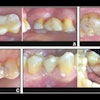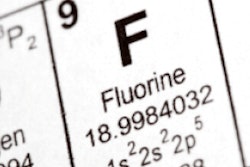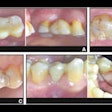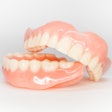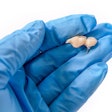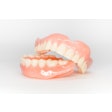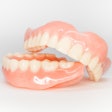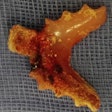
The relationship between tooth loss and hypertension may be bidirectional, according to a study published June 2 in the Journal of Dentistry. Because of a lack of unanimity in the literature, researchers conducted the study to examine the association between the two conditions.
Previous data analyses have supported a bidirectional relationship between tooth loss and hypertension, but some studies used tooth loss as the exposure characteristic and hypertension as the outcome, and vice versa. The new systematic search and data analysis determined there is likely a two-way association between the two conditions.
Researchers observed a positive association when severe tooth loss was set as the exposure component and hypertension as the outcome. Individuals with severe tooth loss had a 12% increased risk of having hypertension. For every seven missing teeth, the risk of hypertension increased nearly 12%.
Further, the risk of hypertension increased with periodontitis severity. Patients with moderate to severe periodontitis had a 20% greater risk of having hypertension.
While many previous studies reported significant positive associations between hypertension and tooth loss, they were not able to exclude the possible role of hypertension as an indicator of tooth loss. This new study helps confirm that individuals with hypertension have an increased risk of tooth loss compared to their peers who have normal blood pressure.
How age, sex impact the link between tooth loss and high blood pressure
One limitation of the existing studies researchers considered is that they were focused on older adults. Age was a common confounding variable, as age acts as a mediator between hypertension and tooth loss. Studies have shown that hypertension was strongly associated with more than 10 missing teeth in individuals ages 65 and older.
However, studies limited to older adults did not strengthen the association between tooth loss and hypertension, and studies that did not have an age limitation found a more significant association between the two conditions. The study's authors suggest that future research analyze the effect of age on tooth loss and hypertension.
Study authors also pointed out that different risk factors exist for males and females. Hypertension is the leading cause of morbidity and death in postmenopausal women, and postmenopausal women with tooth loss have a 20% higher risk of developing hypertension. Further, postmenopausal women are more likely to experience tooth loss as a result of osteoporosis.
For men, tobacco use is more common than it is for women, which is a mutual factor for both tooth loss and hypertension. Although study findings indicate that females with tooth loss are more likely to have hypertension, researchers did not find a significant statistical difference between men and women.
Explaining the bidirectional relationship
Cardiovascular disease is a serious medical condition that progresses over time and manifests symptoms during advanced stages of the disease. It is estimated that by 2030, 23.6 million people will die of cardiovascular disease each year.
The risk factors for hypertension and cardiovascular disease often overlap with those involving dental diseases, including age, gender, smoking, obesity, and diabetes. Toxic products, systemic inflammatory mediators, and bacteremia result in vascular inflammation and endothelial dysfunction that impact hypertension. Systemic inflammation related to hypertension may also activate local inflammation, releasing periodontal inflammatory mediators and destroying periodontal tissues, eventually leading to tooth loss.
While this study's findings indicate the possibility of a bidirectional association between hypertension and tooth loss, the study authors have called for further research.
"There is a need for future studies to identify in depth the mechanisms for the association between hypertension and tooth loss," the study authors concluded.


